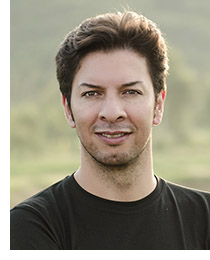Pathogen-Informed Decision Tools in the Rice-Based Agricultural Ecosystems
Ricardo Oliva, International Rice Research Institute, Los Baños, Laguna, Philippines
 Abstract: Despite the efforts to generate resistance varieties, durability is under continuous threat by fast-evolving pathogen population. Preventing disease epidemics, therefore, is not only a breeding exercise but also an interdisciplinary approach that requires a deeper understanding of the systems. To take informed-decision, we need to recognize the factors that account for pathogen dynamics, locally effective resistance genes, and conducive environments. In this presentation, we will discuss our strategies to connect resistance breeding, pathogen genomics, epidemiology, and deployment of resistance genes. We will also explain our attempts to explore artificial evolution using genome-editing tools and the mining of rice diversity panels to capture novel sources of resistance.
Abstract: Despite the efforts to generate resistance varieties, durability is under continuous threat by fast-evolving pathogen population. Preventing disease epidemics, therefore, is not only a breeding exercise but also an interdisciplinary approach that requires a deeper understanding of the systems. To take informed-decision, we need to recognize the factors that account for pathogen dynamics, locally effective resistance genes, and conducive environments. In this presentation, we will discuss our strategies to connect resistance breeding, pathogen genomics, epidemiology, and deployment of resistance genes. We will also explain our attempts to explore artificial evolution using genome-editing tools and the mining of rice diversity panels to capture novel sources of resistance.
Bio: Dr. Oliva is currently a Scientist II at Rice Breeding Platform at the International Rice Research Institute, in Los Banos Philippines. He obtained his Ph.D. degree in Plant Pathology from the Swiss Federal Institute of Technology (ETH), Zurich and postdoctoral training at The Sainsbury Laboratory, Norwich, UK. Later on, Dr. Oliva moved to a faculty position under the Prometeo Fellowship sponsored by the Ecuadorian government. He was then appointed as Scientist at the International Rice Research Institute, Philippines; recently Dr. Oliva was appointed head of the plant pathology cluster at IRRI. Dr. Oliva's research group contributes to host plant resistance against major diseases of rice. His current activities focus on developing strategies to customize the deployment of resistance genes in rice agro-ecosystems. Dr. Oliva is incorporating the current understanding of plant defense response and pathogen population biology to assess durability of resistance genes and reinforce rice-breeding strategies. The group is also interested to explore rice germplasm for the identification of novel genes as well as the molecular characterization of bacteria-rice interactions. More recently, Dr. Oliva's group is investigating the role of microbial communities in rice health and agronomic performance.
